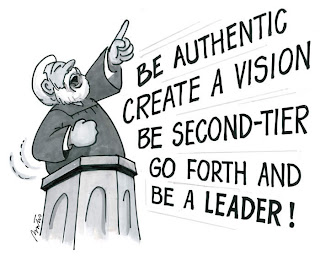
In a study of 200,000 ostriches over a period of 80 years, no one reported a single case where an ostrich buried its head in the sand (or attempted to do so).
- wimp.com
By Jim Crocker, past CEO and now Chair of Boardroom Metrics. Jim works with private and not-for-profit clients on corporate strategy and governance. His partner Karen McElroy leads an international business writing team that helps clients write and win RFP's.



Part I describes the importance of the Board's governing role. See Part I here.
.........so how should organizations deal with the quiet disconnect between management and the Board over the Board's role? Does it even matter?
I have a few thoughts.
First, if there is an underlying tension between the Board and management it is natural and healthy. While overall goals of the Board and management are aligned - success of the organization - at the end of the day management's role and the Board's role are different: management operates and the Board judges management's performance.
Second, Boards and Board Chairs need to be more explicit about their roles - with themselves and with management. By being more explicit - "our role is to govern and to assess management's performance" - Board's set expectations for their role that don't set directors or management up for disappointment.
Third - and Boards seem to be doing this - Board's need to get better at their governance roles. Governance in particular is not simple. While some issues are black and white, many require in-depth knowledge of law, business, policy, and decision making process. Only by stocking Boards with diverse, independent and experienced directors can consistent, timely and correct governance decisions be made.
Typically, larger business organizations are more advanced in performing their governance roles. Smaller organizations, and too many not-for-profit organizations appear to struggle with governance and seem destined to continue doing so.
Board composition is a key factor. Small company boards are frequently over-stocked with self-interested parties: investors, service providers, friends and family. Not-for-profits, even the ones that attract strong, experienced board members, frequently also attract, or are mandated to include, representatives from stakeholder groups who may have little or no Board experience.
In summary, I believe it DOES matter that Board's explicitly identify that their primary role is governance, and what that means. By explicitly defining their role, Board members and management teams get more satisfaction from their Board involvement. Everyone quickly comes to see that by providing strong governance, the Board IS making a significant contribution to the organization.
Part I describes the importance of the Board's governing role. See Part I here.
....managing Board effectiveness is the responsibility of the Board chair. There isn't a more important role in the organization. Staffing the Chair role requires careful planning and insight.
There are 6 key qualities of a good Board chair:
Overall responsibility for the Board falls to the Chair. However, strong committees are also vital to a Board's success. These committees enable the Board to stay focused and up to speed on issues like audit, compliance and human resources. A recent study shows that the average large corporate board in the US and Canada has between 4 and 5 committees.
Q. What's one of the biggest complaints CEO's have about their Boards?
A. "The Board is a waste of time - it doesn't add any value."
Q. What's one of the biggest complaints Board members have about their Boards?
A. "This Board feels like a waste of time - it doesn't feel like we're adding any value."
Q. What's going on here?
A. Who said the role of the Board is to add value?!
It's not - at least not in the context of masterminding the next I-Pod or the next outsourcing strategy. That's up to the management team.
The role of the Board is to govern - some Boards are even called Boards of 'Governors'. There are 5 key elements of governing effectively:
The Board role is a mix of three things:




"In terms of dividend transfers to the provincial government, in fiscal 2005-2006 we delivered our 11th record dividend –
$1.2 billion. This figure, which does not include taxes, was$57 million more than the previous year and7.6 per cent higher than the previous year. Our net sales were also a record at$3.6 billion, 4.4 per cent higher than the year before."
Okay. I know it’s a settings thing. Sometime, a long, long time ago – probably when leadership was being invented – I must have indicat...
